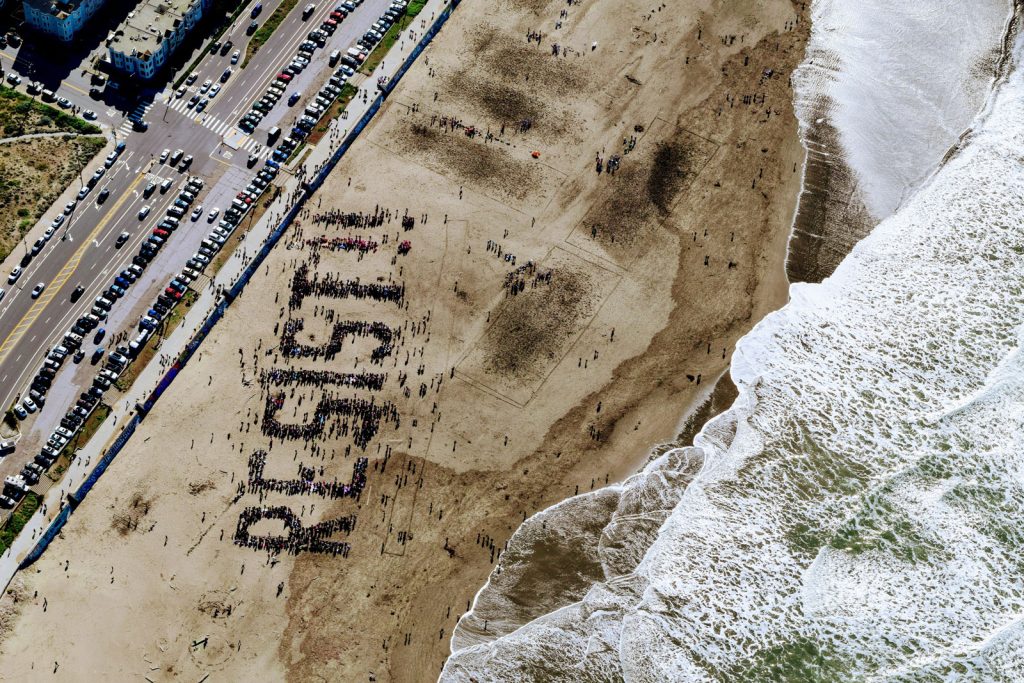The phrase “Mindful Resistance” came to Robert Wright during a meditation retreat in the spring of 2017. Wright, a science journalist and bestselling author of Why Buddhism is True, saw a need for thoughtful—and not always reactive—response to the news du jour coming out of the White House, as well as the need for us to better understand the underlying issues that led to Donald Trump’s presidency.
“I had already started to worry that what was being called ‘the resistance’ was, in some cases, being too reactive or hyperbolic for its own good and playing into Trump’s hands,” Wright said. “He wants to have an enemy that seems not to respect the people who voted for him, for example. So, if you say, ‘People who support Trump are racists,’ he’s loving that.”
Mindful Resistance launched as a weekly newsletter more than a year ago and has since gathered more than 11,000 followers, Buddhist and otherwise. (Update: On September 16, Wright announced that he was renaming the newsletter Nonzero.) Below, Wright talks with Tricycle about the importance of sharing truly newsworthy stories and how mindfulness can help us better understand the feelings behind our knee-jerk retweets.
How do you vet and decide the articles that you include in the newsletter? There’s a very brief summary of the big news of the week at the top and then there’s a lot of background links at the bottom. With both of these sections, we’re trying to focus on the truly significant information and trying to say, “Here’s another crazy thing Trump did or said that’s going to outrage you.” I mean, there are significant things, like when he said this week that he can amend the Constitution by executive order so that people born in the United States are not citizens. That is outrageous, but it’s also genuinely significant when a president asserts that he has this authority. We have to report that.
But when he says for the 500th time, “The fake news media is the fake news media,” that’s a little less momentous—although that example is a tough call, because over the last couple of weeks, somebody who was drawn into his “fake news” narrative seems to have sent mail bombs to people, including a news outlet.
Related: What is the Mindful Response to a School Shooting?
At our weekly staff meetings, if Trump has done something outrageous, or if there is a hint of scandal in his administration, the one thing I ask is, “Isn’t the regular resistance going to do an adequate job of publicizing this?” If it seems like the kind of thing that’s destined to spread through Twitter and Facebook rapidly, it’s not massively momentous. We think of our job as trying to crystalize the genuinely significant, filter out the pointlessly enraging, and then also call attention to important things that are being ignored. An example of this is the murder of journalist Jamal Khashoggi in Istanbul by Saudi operatives. Suddenly, we started seeing more attention paid to the war in Yemen that’s being led by Saudi Arabia. We had been trying to draw attention to that for some time, and it was often drowned out by another week of Trump outrages.
There are genuinely important things happening all over the world and things that, from a Buddhist perspective, we want to call attention to, like the American support of bombings that kill children and the Saudi economic blockade of Yemen that is starving children. And we want to try to keep these stories from getting smothered by the natural human reaction to Trump’s ongoing outreaches.

It’s just so easy to latch on to the explosive news. And I’m reminded by a piece we ran by Bhikkhu Bodhi on the belief among some Buddhists that politics are too dirty to get involved in. He writes that politics are dirty, but that this is the arena where important issues are being decided. He’s talking about a different engagement than circulating stories on social media about Trump’s hair blowing in the wind. Bhikkhu Bodhi has been such a great voice on the importance of political engagement and not using Buddhist practice as a way to hide.
That’s actually a longstanding question: Will the Buddhist path leave us so able to maintain our equanimity regardless of the external circumstances that we become indifferent? I agree with Bhikkhu Bodhi’s answer, which is no, it should allow us to more skillfully engage with challenges surrounding issues of justice and nonviolence and so on.
And there’s a related question with regards to social media. On the one hand, I would like the newsletter to serve as something that people can use if they want to take a break from social media or the news for a week. If they unplugged from everything else, when the newsletter shows up on Saturday, they would still get a summary of the weekly news that we think was worth paying attention to. On the other hand, I would hope that people will not run away from social media entirely, because it’s an opportunity for all of us to exert influence. We all need our breaks and meditation retreats every once in while. It is my hope that we can help people get better at engaging in social media skillfully and preserving equanimity even as they engage in social media, which is a real challenge. I don’t always succeed at it, for sure, and I’ve got the history of tweets to prove it.
Can you share one or two tips on productively engaging with social media? When you feel the urge to retweet or to share something on Facebook, try to pause and reflect on the feeling that is encouraging you to do that. It’s valuable to ask yourself, “What is driving the urge to share or retweet?” And if you find the motivation is belligerent or retributive, l would just then pause further and reflect on the value of actually doing it. I saw a tweet this morning where a democratic politician said, “Here’s how we know [White House press secretary] Sarah Huckabee Sanders is lying.” And it had 10,000 retweets or something. In a case like that, if you pause and reflect on the feeling that’s making you retweet, it’s probably going to involve implicit antagonism toward someone, like, “Yeah, take that, Sarah Sanders, I hate you.”
If it were up to me, Facebook and Twitter would automatically pause for 20-seconds whenever you try to click the retweet or share buttons. That would really help.
Ultimately, I recommend that we try to be mindful, but of course, nobody is going to be perfect. And I can’t imagine anyone who is better at testing our mindfulness than Donald Trump. He’s a 24-7 challenge.
Related: Why Buddhism is True (And Why You Can Blame Natural Selection for Your Suffering)
This interview has been edited for length and clarity.
Thank you for subscribing to Tricycle! As a nonprofit, we depend on readers like you to keep Buddhist teachings and practices widely available.
